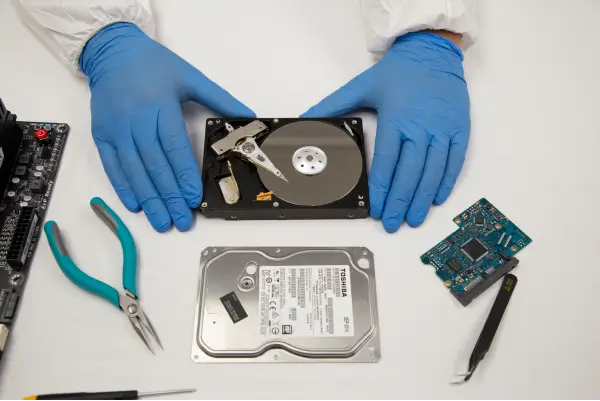Today’s World Backup Day has its roots in a campaign started by hard drive company Maxtor (later acquired by Seagate) in 2005. Back then, it was called World Backup Month. Ismail Jadun, a technology consultant, has been credited with initiating World Backup Day in 2011. The day aims to raise awareness about our increasing reliance on technology and the importance of backing up our digital information.
As the world emerges slowly from the grip of a global pandemic, it’s vital that we remember just how dramatically COVID-19 has changed how we work, attend school, shop and socialize. Our reliance on technology, already at a high peak, further skyrocketed in the last year as companies initiated work-from-home protocols and education became almost universally remote. As ever with the expansion of technology, so too has the threat of a cyberattack extended its reach.
Some Uncomfortable Truths
A recent report on current and emerging cybersecurity threats by technology research firm Canalys provides context for understanding key trends in the post-COVID security market. Principal among them is the importance of “broadening protection, detection and response measures.” The technological expansion required to confront the pandemic happened rapidly, and cybersecurity measures were not always able to keep up.
In 2020 data breaches increased by nearly 120 percent, according to Canalys. Cybercriminals compromised 31 billion data records, an increase of 171 percent over 2019. In fact, more data records were exposed in the 12 months of 2020 than were exposed in the previous 15 years combined. As COVID-19 accelerated the expansion of digital technology, it also exposed substantial security risks.
A Personal and National Threat
The sad truth is that most of us have had at least some of our personal information compromised in a data breach. Look for yourself here. You can search across multiple known breaches to see if your email address appears. But 2020 hasn’t just been a banner year for data leaks of personally identifiable information, as bad as those have been.
Cybercriminals have increasingly targeted our healthcare infrastructure at a time when providers are struggling against a virus that has killed hundreds of thousands and infected millions more just in the United States alone. They’ve even gone after the COVID-19 vaccine supply chain. Increased ransomware attacks on healthcare providers have in some cases crippled the ability to properly care for patients.
Catastrophic cyberattacks against public and private entities have further shown that the growing security threat has national scope and potentially global consequences. In December last year, cybersecurity firm FireEye uncovered a supply chain attack on SolarWinds’ software platform Orion, which is widely used by government agencies, manufacturers, telecommunications firms, and colleges and universities.
So How Does All This Relate to Backups?
If there has been a consistent message about cybersecurity in the last year, it has been the vital importance of thorough and consistent backups. Government agencies, law enforcement, and cybersecurity professionals all agree that an essential defensive measure to protect against ransomware and malware attacks is to make certain that you protect business-critical information in offline, encrypted backup systems.
The message of World Backup Day may have started as a reminder to consumers that they should make backups a regular habit. Given that so much of our lives is captured in digital format, it pays to heed the reminders. More so because much of that personal data could never be replaced. But the stakes are much higher than just the loss of cherished memories.
A Comprehensive Security Solution
Ransomware attacks in 2020 targeted sectors that were compelled by the global COVID-19 pandemic to transform the way they delivered goods and services. Healthcare saw the most known data breaches (23 percent) last year, followed by tech and data analytics companies (17 percent), government (16 percent) and education (10 percent). As the tools to protect data increase in sophistication, so do the potential vectors of attack.
SecureData has for more than a decade led innovation in hardware-encrypted USB and flash storage devices, remote drive management, drive-based antivirus protection, and data loss prevention software. Advanced and persistent cybersecurity threats require a comprehensive, layered security response that takes into consideration the wide range of potential pathways for attack.
Our comprehensive strategy begins with offline encrypted backup storage. Sophisticated ransomware can easily burrow into a computer network and potentially infect every device connected to it, including backup systems. Our Remote Management license adds a further layer of protection with user authentication via mobile app and secure Bluetooth connect as well as the ability to control where, when, and by whom all drives can be accessed.
Backing up your digital information is essential to business continuity, to protecting cherished and irreplaceable personal documents, and to shielding yourself or your company from cyberattacks. The message of World Backup Day is one that’s worth keeping in mind far more than just one day each year. The best way to stay safe is to have a clear plan that is flexible, comprehensive and consistent.













